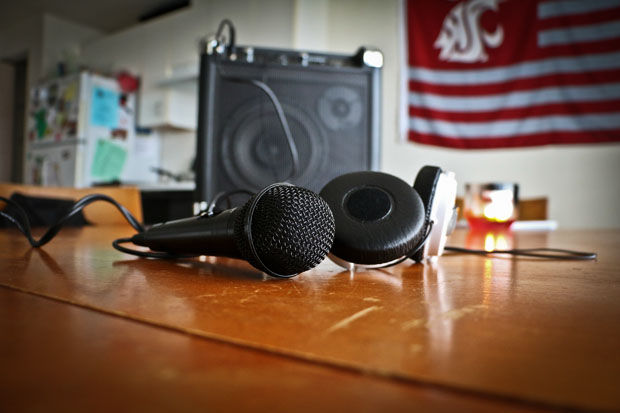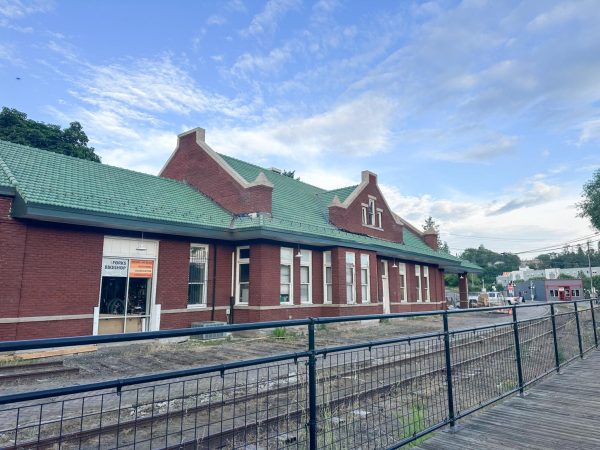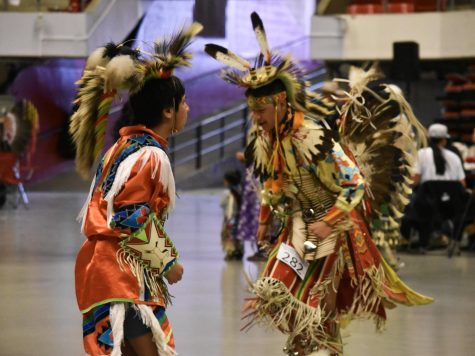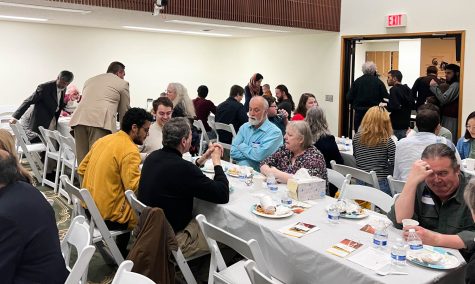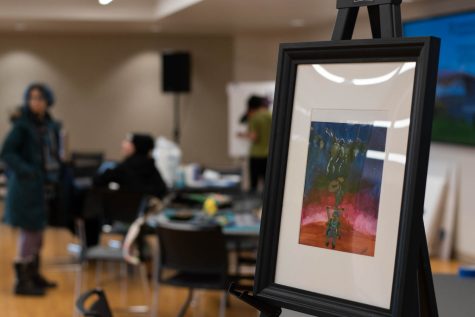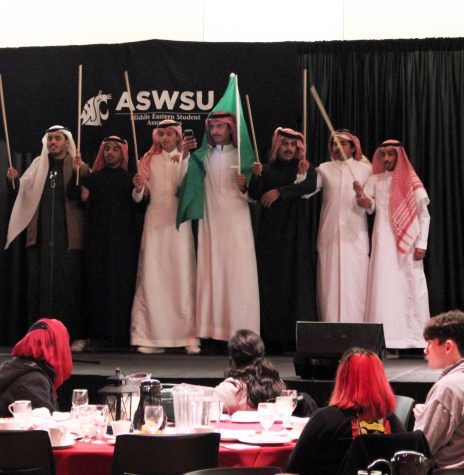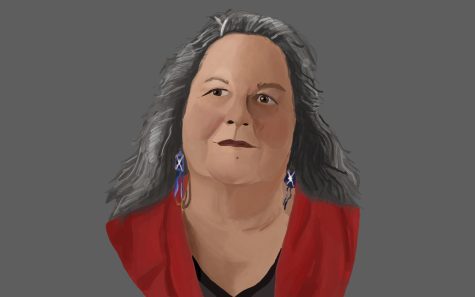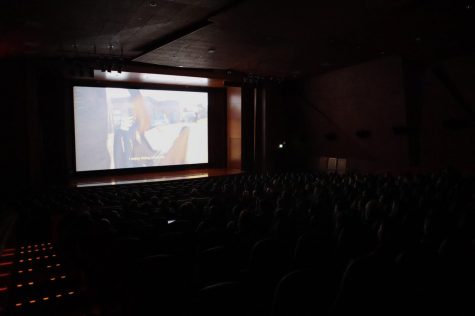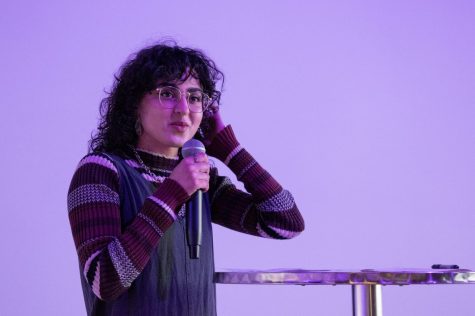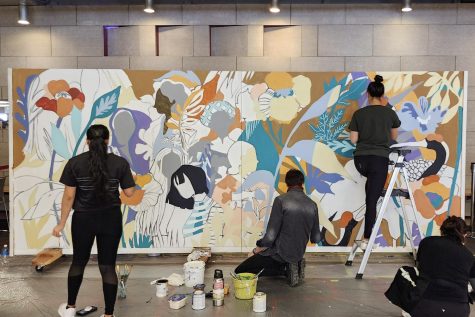WSU School of Music explores electroacoustics
February 2, 2015
As technology use broadens, so does its role in music and art.
Over the course of three days, this week WSU’s 25th annual Festival of Contemporary Art Music aims to explore music and its role in the artistic community with a series of free concerts.
“We want to expose people to music they might not be hearing otherwise,” said Scott Blasco, an assistant professor at the WSU School of Music.
Contemporary music covers a vast range of styles, Blasco said, but it generally pulls from the historical roots of classical composers like Mozart.
“It’s off the radar. You kind of have to look for it,” said Ryan Hare, coordinator of theory and composition and associate professor of music at WSU.
While commercial music is generally concerned more with making money, contemporary art music is about exploring who the artist as an individual is, Hare said.
“It fits into some tradition of art for art’s sake,” he said.
The first of the festival’s concerts begins at 11 a.m. Thursday in Kimbrough Hall and will premiere musical pieces WSU students have put together, Hare said.
The students have all taken a composition course before, and one of their final requirements is to have a piece they wrote performed live, he said.
“It’s one of the biggest showcases we have here for student composition,” Hare said.
The students will see their pieces brought to life on stage by a combination of their peers and faculty members, Blasco said.
“This is one of those things where they really have to take charge,” he said.
Later that day audience members will have the chance to hear professional compositions when the Faculty Composers Concert begins at 8 p.m. in Bryan Hall.
“One of the strengths of WSU’s music program is that us composers are all very different,” Hare said. “You’ll hear many different styles of music.”
One of the pieces performed will be Hare’s own composition based on an Edgar Allen Poe poem. Hare said he created the piece back in 2012 when he was commissioned to write a one-minute song.
Other pieces performed will include compositions by Gregory Yasinitsky, regents professor at and director of the WSU School of Music, Dave Jarvis, the coordinator of percussion studies at WSU, and Blasco.
The second day of the concert will see traditional instruments and electronics come together for the ElectroAcoustic Concert, beginning at 3 p.m. on Friday in Kimbrough Hall.
“There were innovations in the 20th century that led to computers being explored as new instruments,” Hare said. “People asked “What’s this new sound, and how can we make music?”
The concert will feature a number of experimental pieces, including an improvisation piece between Blasco and Alberto Ferro, a graduate student mastering in piano performance.
“The idea is simple. He has an instrument. I have an instrument, and we try to play off each other,” Ferro said.
While Ferro improvises on the piano, Blasco processes the sounds with a computer, and then manipulates the played notes in any way he finds creative, Ferro said.
“Sometimes it’s truly inspiring. You get ideas that you would never think about,” he said.
Another of Blasco’s compositions performed during the electroacoustic concert will be sung by Brian Carter, a vocal professor at WSU.
“He and I had been talking awhile about doing a set of songs that focused on the voice, but that also contained elements of electronic music to go along with it,” Carter said.
The song performed is the first in a set of songs based off Emily Dickinson’s works, he said.
“We loved that she’s an American poet who had a tendency to write about very internal subjects,” he said.
Carter said the piece challenged him as singer since it required a higher vocal range to create an “ethereal, floating” sound.
One of the difficulties facing electronic music today is how quickly the technology behind creating the songs ages, Blasco said.
“How do you perform some of these pieces on obsolete, unavailable equipment,” he said.
Sometimes the only options for recreating the original sounds are building the old synthesizers from the ground up, he said.
The festival will come to a close at 8 p.m. Saturday in Kimbrough Hall when selected works of contemporary composer Diane Thome will be featured.
Thome was a professor at the University of Washington for more than 30 years and was the first woman to graduate from Princeton with a doctorate in music.
Her university was one of the first institutions to begin experimenting with electronic music, she said. And her situation as a graduate student allowed her unique access to begin composing for computers.
“It was a very transformational experience,” Thome said. “It changed my perception on composing.”
Four of her works will be featured, including two that will be played by musicians on stage, and two others that will just be played over the speakers, she said.
“It’s not imperative that you’re watching a performer,” she said. “There are different ways to experience music.”
Thome said she still visits many festivals year round to hear the new sounds people come up with.
“You can have fancy technology and still make very dull music,” she said. “And yet there are people with stripped down stuff making interesting music.”
Ultimately, contemporary music exists to push at the boundaries of the art, Hare said.
“Traditional art is not ours,” Ferro said. “It said something different to those people, but we have to make our own; something that connects with us.”


